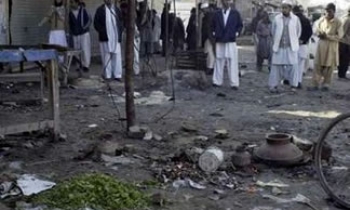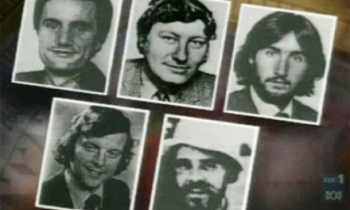OSLO, Feb 7 (Reuters) - The head of Norway's press association, whose life has been threatened by Muslims angered by satirical cartoons of the Prophet Mohammad, said on Tuesday the right to offend others was crucial to freedom of expression.
Amid spiralling unrest over the images, Per Edgar Kokkvold, Secretary-General of the Norwegian Press Association, told Reuters in an interview he was unafraid and would continue to defend the right to publish offensive material.
He neither drew them nor published them, but Kokkvold has been in the eye of a storm over the publication in Norwegian, Danish and other European newspapers of cartoons of the Prophet, which has ignited widespread rage in the Muslim world.
"It is important to defend not only freedom of expression but also the right to offend people, even if offending people is not always a beautiful sight," Kokkvold said.
"People who live in our society have to realise that we have the right to our values and to our freedoms, including freedom of expression," he said. "Without freedom of expression, you don't have the other democratic rights either."
Fresh unrest erupted across the Middle East, Asia and Africa on Tuesday over the drawings.
Four Afghan protesters were shot dead by police and six Norwegian soldiers were hurt in Afghanistan when rioters broke into a Norwegian compound. Embassies of Norway and Denmark in the Middle East have been attacked by angry demonstrators.
Iran's best-selling newspaper Hamshahri launched a competition to find the best cartoon about the Holocaust in retaliation for the Mohammad images, one of which portrayed him wearing a turban resembling a bomb with a burning fuse.
Kokkvold said he would defend the Iranian newspaper's right to do that. "I think we have to accept that as we have to accept even the burning of flags as part of freedom of expression."
The cartoons were first published in the Danish newspaper Jyllands-Posten in September, and a tiny Norwegian Christian paper called Magazinet reprinted them in January. Islam forbids images of the Prophet Mohammad.
"I have not said it was right to publish those cartoons, but I have defended Jyllands-Postens and Magazinet's right to do so, because it is lawful," said Kokkvold, a former editor of a Social Democratic newspaper. "I have never trampled on a Muslim or have any wish to offend a Muslim."
UNAPOLOGETIC, UNAFRAID
In 1993 the Norwegian publisher of British author Salman Rushdie's novel "The Satanic Verses" was shot and wounded in Oslo. Norwegian police suspect an Iranian hitman was behind the unsolved crime that followed an Iranian death order on Rushdie.
Kokkvold said he was not afraid and had not been threatened by anyone in Norway, only abroad -- in the form of emails and images of his face on an Islamist Web site, targeted as if in gunsights, and on placards carried by protesters.
Publication of the Danish cartoons was "not insulting to the Prophet but offends people who in the Prophet's name think they can kill and terrorise other people", he said.
Kokkvold -- who admires British author George Orwell's definition that "If liberty means anything at all it means the right to tell people what they do not want to hear" -- said journalists also bore responsibility.
"The right to offend does not mean we have a duty to offend," he said. "And it's important that journalists and editors in all their work try to see things also from the side of people who are offended."









